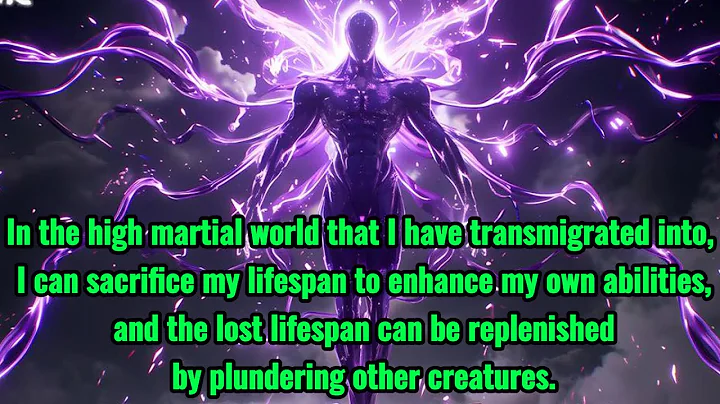Do you remember the fable of the North Wind and the Sun? The North Wind and the Sun compete to see who can make passers-by take off their cotton-padded clothes. The north wind blew hard, which only made passers-by wrap their cotton clothes tighter. Under the warm sunshine, passers-by felt hot and naturally took off their cotton-padded clothes.
A child's backtalk and indifference are just like this cotton-padded coat. To get him to take off this cotton-padded coat, he can only rely on warm love, tolerance and understanding.
A few days ago, I was chatting with a friend. Her child is 8 years old. Recently, she feels that as the child grows up, it becomes more and more difficult to manage. He won't listen to you if you tell him nicely, and he doesn't care if he is criticized. He even starts to talk back to adults, a bit like the proverbial "meat on a hob."
Take homework as an example. Children always spend a lot of time doing homework, playing for a while and writing for a while. Especially on weekends, homework can drag on for a whole day. The friend suppressed his anger and tried to be persuasive: "Look, mom originally wanted to take you hiking on the weekend, but you just did your homework for more than a day, so we can't go anywhere." The child said nonchalantly: " If you don’t want to go, I won’t go. I don’t want to go hiking anyway.”
My friend said, “Why doesn’t he like climbing? He just talks so hard! How should I control this kid?”
 Listen to my friend. Having said that, I am reminded of an incident that happened not long ago between me and my son Chengzi. The two are quite similar. Over the weekend, the things I bought online were delivered. Chengzi looked at the tightly wrapped express delivery, and the boy's destructive desire aroused, and said: "Mom, let me open it for you." I said okay, you can find a way to open it. Cheng Zi turned to the kitchen and took a fruit knife. He poked half of the blade into the center of the package and heard a "plop" sound. I quickly shouted stop, opened the package and saw that the contents inside had been punctured.
Listen to my friend. Having said that, I am reminded of an incident that happened not long ago between me and my son Chengzi. The two are quite similar. Over the weekend, the things I bought online were delivered. Chengzi looked at the tightly wrapped express delivery, and the boy's destructive desire aroused, and said: "Mom, let me open it for you." I said okay, you can find a way to open it. Cheng Zi turned to the kitchen and took a fruit knife. He poked half of the blade into the center of the package and heard a "plop" sound. I quickly shouted stop, opened the package and saw that the contents inside had been punctured. The thing I just bought was punctured. Although I know that Orange didn’t mean it, I was still a little annoyed. Looking at the orange again, the child was sitting next to him, swaying his feet, looking at me and giggling, as if this was a very interesting thing.
got into trouble and still laughed? I took a deep breath, got up and walked around to other rooms. After calming down a bit, I came back and continued to clean up the mess. Dad Chengzi wanted to say something with a fierce face, but I stopped him: "Stop saying it." Then I said to Chengzi: "It doesn't matter, mom knows you didn't mean it. You will know next time when you open the package, you have to sew from the side. Cross it out. "
This matter is over, everything is business as usual.

After a while, Chengzi ran to me and said: "Mom, I'm sorry."
Did you find it? The two children behaved similarly when faced with possible accusations: they were indifferent. This kind of indifferent attitude often adds fuel to the anger of adults and adds another crime to the child: Why is this child so shameless that he still refuses to admit that he has made a mistake? What's the big deal if things go on like this?
In fact, we only see the child's indifference, but not his inner desire. We always feel that if a child does something wrong and we criticize him, he should show his proper attitude and admit his mistake obediently: Mom, you were right to criticize, I was wrong, and it won’t happen like this next time. It seems that only in this way can the educational effect be achieved, and children will realize their mistakes and change their ways.
No matter how young a child is, he is an independent individual and has self-esteem. Especially after children enter elementary school, their awareness of autonomy increases and they become more face-conscious. The reason why he behaves indifferently and indifferently is that he is worried about being criticized and criticized by adults.

No matter how mild the criticism and accusation is, it is an attack. is saying: You are not good, you have done something wrong. In the face of an attack, a person's psychological defense system will respond automatically. When children with different personalities face criticism, their defense systems will respond differently.
Some children have stronger hearts and will use offensive methods to defend themselves, which is what adults often call "talking back" : You are wrong, I did nothing wrong! Or, you say I didn’t do well, but you didn’t do well anywhere!
Some children have weak attack power, so they make a golden bell and an iron cloth shirt for their hearts to block the attacks from the outside and show that they don’t care and don’t care. : My mother said that I was too lazy to do my homework and couldn’t go hiking, so she pretended that I didn’t care. When it comes to mountain climbing, not being able to climb is no longer a punishment for me, which prevents my mother from talking about it.
I broke something my mother just bought. I noticed that my mother was very angry and might be scolded. Regardless of whether I was afraid or not, I pretended that I was not afraid. I'm not afraid, what can you do to me?

Of course, children may not be so clearly aware of their own thoughts. Acting indifferently is often a subconscious reaction. Maybe the child himself does not realize why he is doing this. It is the inner automatic defense system that plays a role.
Psychology believes that anyone’s behavior has positive motives. The so-called positive does not involve the moral aspect, but refers to what is beneficial to oneself and for the purpose of protecting oneself. This nonchalant attitude is to add a shell to the soft heart to protect yourself from harm.
So, what should we do when our children seem indifferent to criticism?
First of all, you must cultivate your awareness in daily life. Through the child's indifferent appearance, I can see his inner desire: Mom, I know what I did wrong, I have realized it, please stop blaming me!
How can we be aware of the inner voice of children? Don't look with your eyes, but feel the child's heart with your own heart - feel with tolerance and understanding. Everyone agrees with this and the same reason - the mistakes made and the problems are obvious, how could the children not realize it? How could he not be sad and depressed?
Believe in children, believe that children are born with truth, goodness, and beauty, and learn to view them from a positive perspective. Through the child's indifference, you can see that the child has a strong and good heart, discover it, maintain it, and strengthen it. Criticism and accusations will only ruin it.

Secondly, pay attention to controlling your emotions and keeping a good balance. When you find that your child is aware of his own problems, then control your emotions, stop nagging and criticizing, and just stop. Too much is not enough, and talking too much will arouse the child's rebellious psychology. Children are busy dealing with adults' emotional attacks, but ignore the matter itself.
When the package was punctured, I saw Chengzi shaking his legs and smiling. I also "saw" his uneasy mood behind his seemingly relaxed appearance. I know that he already knew that he was in trouble and expected to be beaten, so he used nonchalance to cover up his worry.
Now that he has realized it, there is no need to say anything more. I stopped attacking, and Cheng Zi also lowered his defense accordingly, and instead took the initiative to apologize. This effect is much better than criticism.

Also, stop pursuing right and wrong, and work with your children to find ways to solve the problem. After all, the reason why we go to great lengths to accuse and criticize is to solve problems.
For example, when it comes to mountain climbing, you can try to tell your child this way: I know you actually wanted to go mountain climbing, but it took a long time to do your homework and you couldn’t do it. I’m very sorry. I especially hope to go out with you on the weekends. , relax.Are you a little sorry too? Do you think this is good? Next week, let’s make a weekend plan and allocate time for homework and mountain climbing. Let’s try not to delay either, okay?
Try to feel the child's mood and use descriptions such as "I see" and "I feel" instead of "what are you doing". Expressing your own feelings and thoughts about the matter will invisibly allow the child to think from his perspective, so that he will not stick to his own perspective and defend himself.
Talking back and being nonchalant is like a mask that a child is forced to wear. If we stand on the opposite side of the child, we will not be able to see the true expression behind the mask. We might as well take the initiative to walk over, go around behind the mask, and tell him: I understand how you feel. In this way, you and your child are on the same team. Problems come to you to cause trouble, and you face problems together. Instead of seeing the children and the problem as the same team as before, you stand on the opposite side and do everything possible to deal with them.
Selected from the book "Psychology Every Mother Understands"
Intimate words
No matter how mild the criticism and accusation is, it is an attack, saying: You are not good, you have done something wrong. In the face of an attack, a person's psychological defense system will respond automatically. When children with different personalities face criticism, their defense systems will respond differently.











![[Source: Half Moon Talk] When I heard my younger daughter crying, I rushed over and saw my older second daughter comforting her younger sister. She rolled up her trouser legs, pointed to the scars on her legs, and said, "Look, I've fallen before, here, and here..." The youngest d - DayDayNews](https://cdn.daydaynews.cc/wp-content/themes/begin/img/loading.gif)


![[ALL IN ONE] REGRESSION TO THE PAST, THE EIGHT-GRADE SORCERER RETURNS FOR REVENGE | RECAP MANHWA - DayDayNews](https://i.ytimg.com/vi/sv6ufrYFdok/hq720.jpg?sqp=-oaymwEcCNAFEJQDSFXyq4qpAw4IARUAAIhCGAFwAcABBg==&rs=AOn4CLBAU2GCk7Tw6cXT28q1P19FN7SOog)






